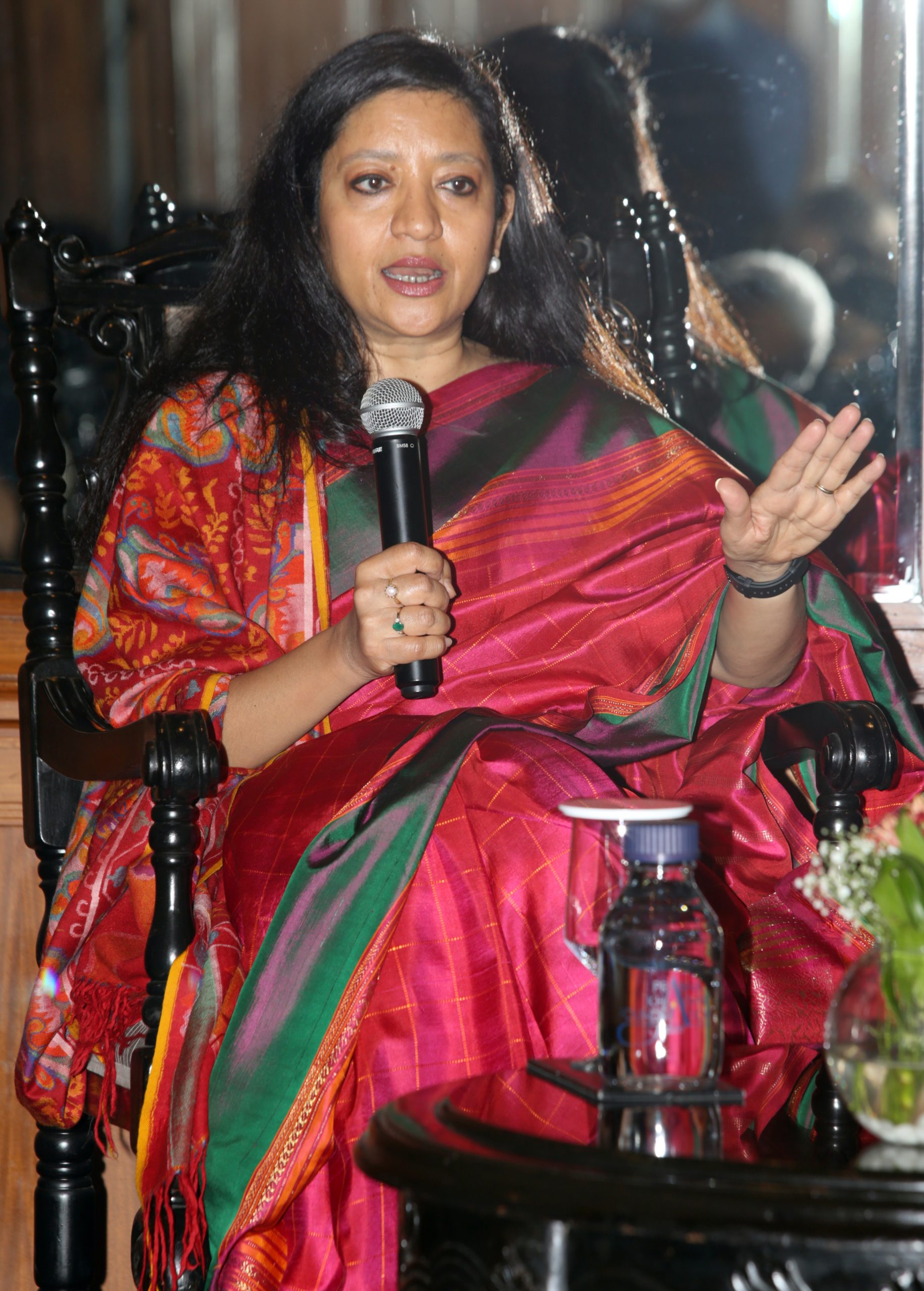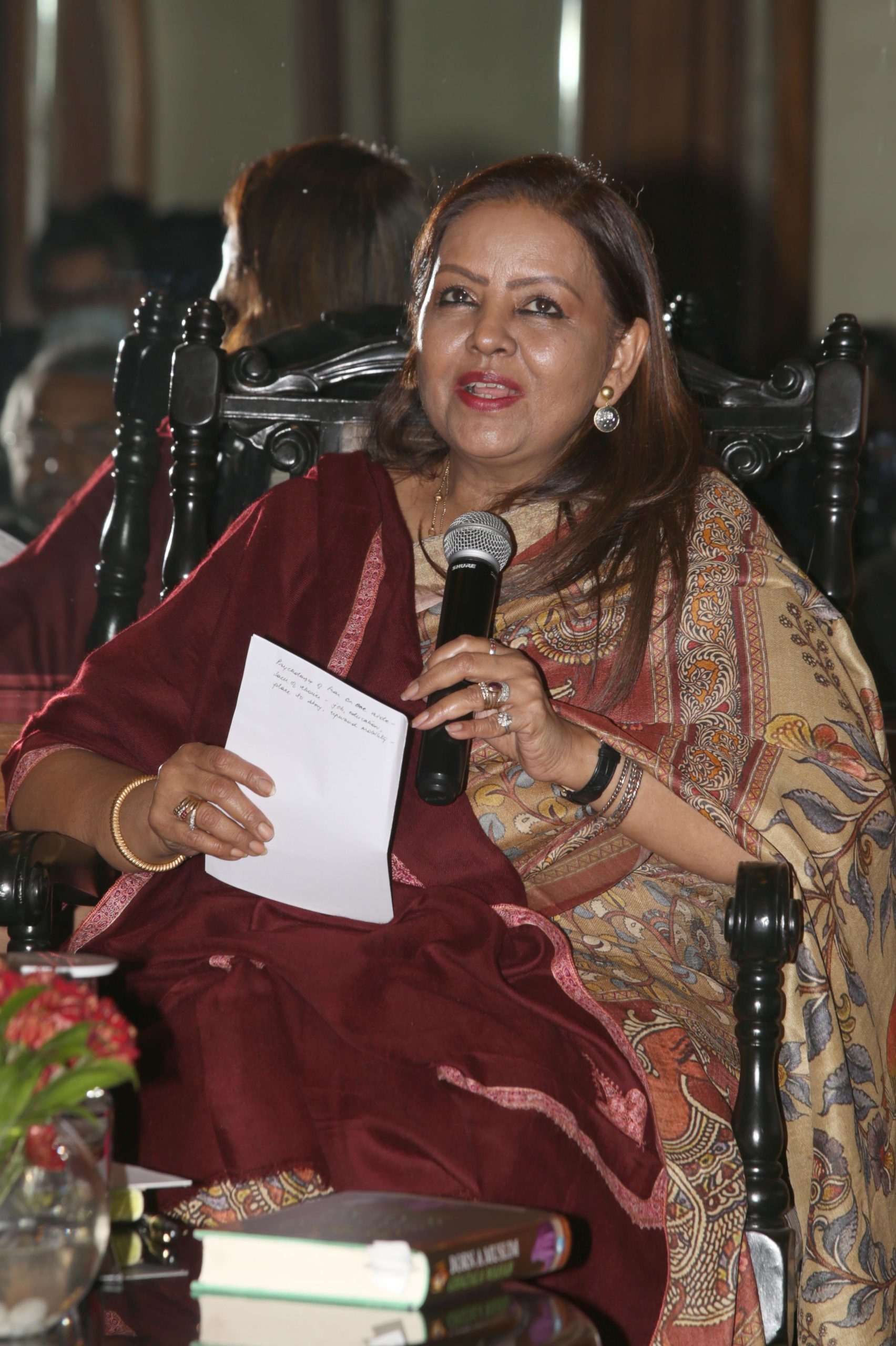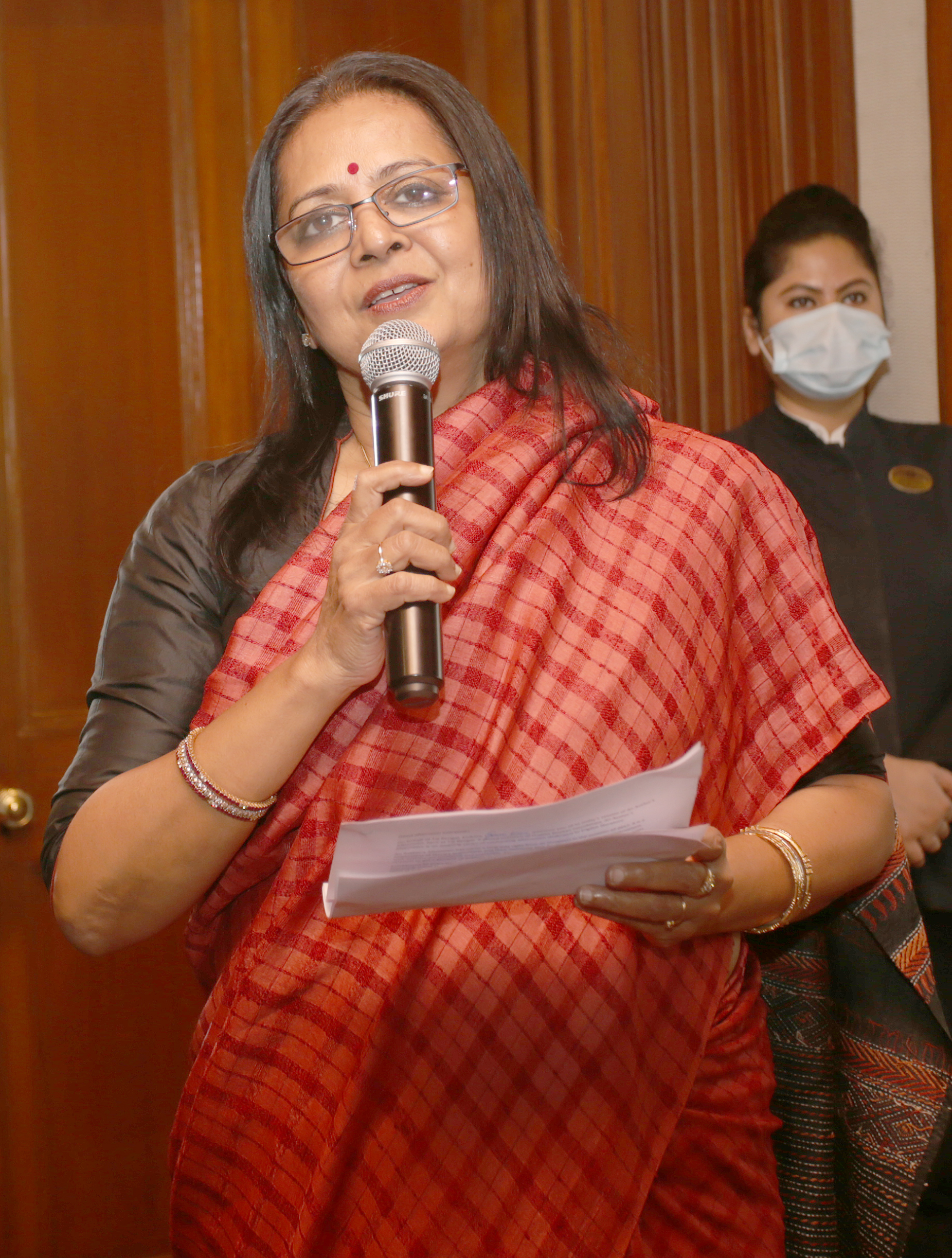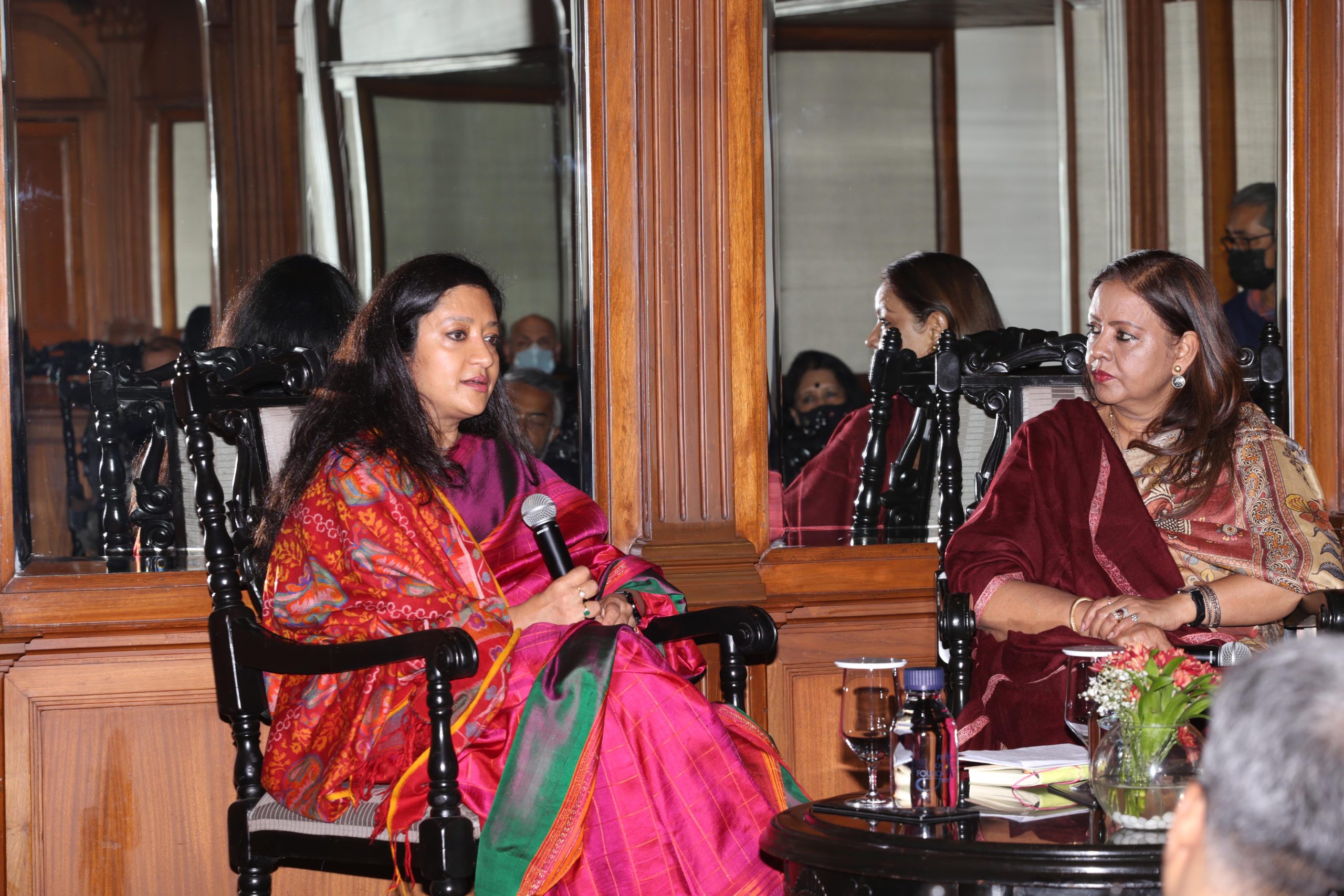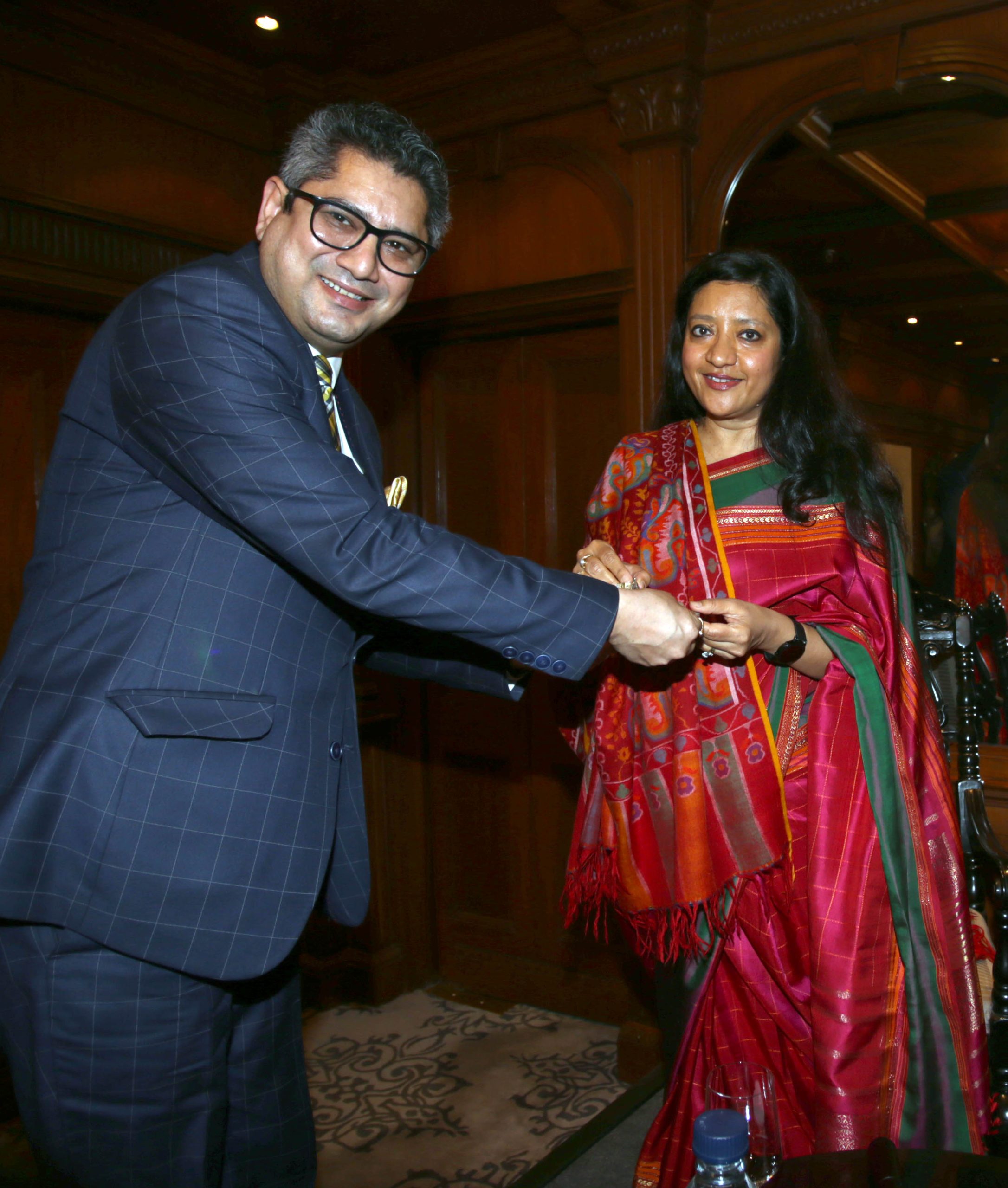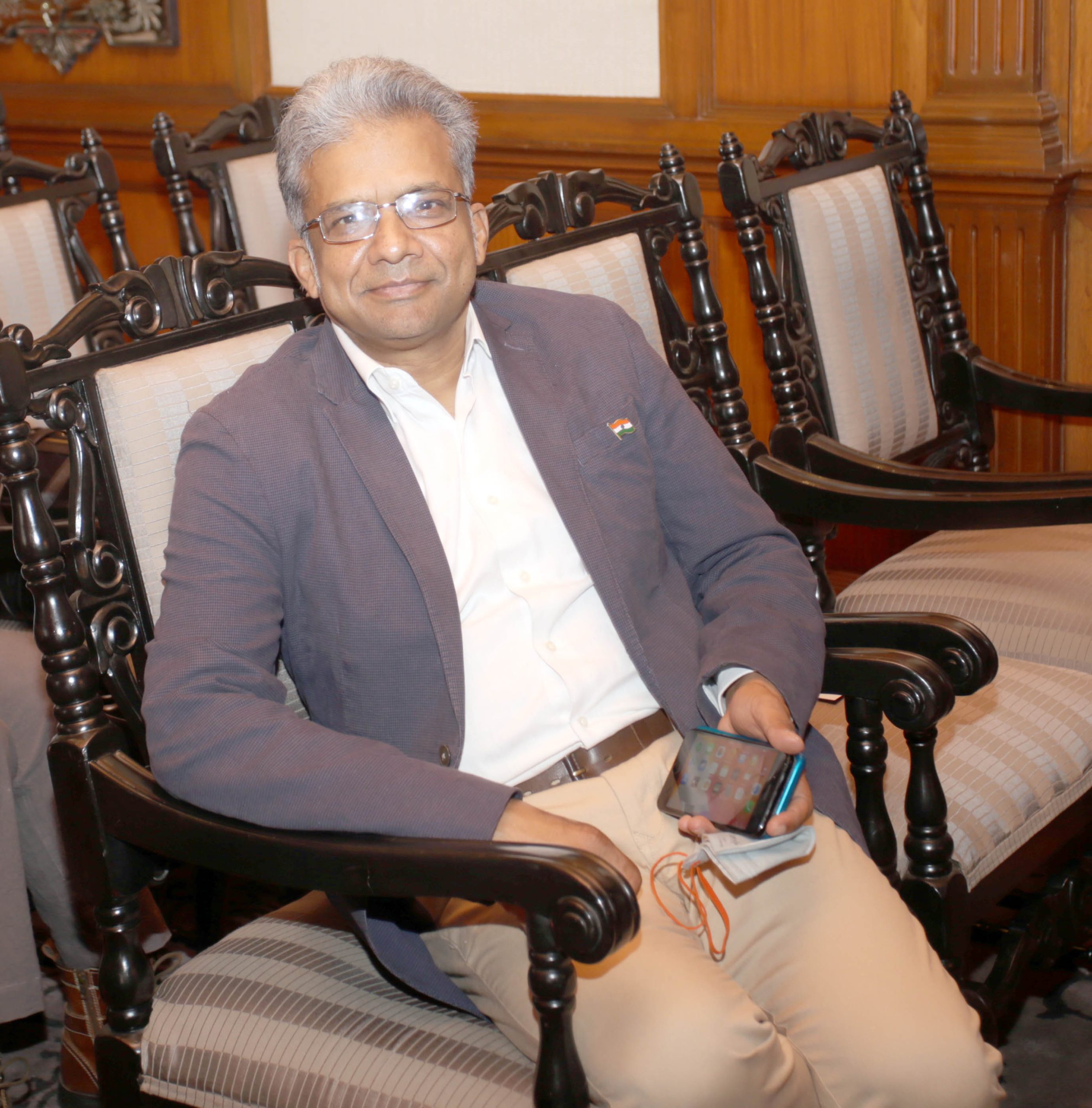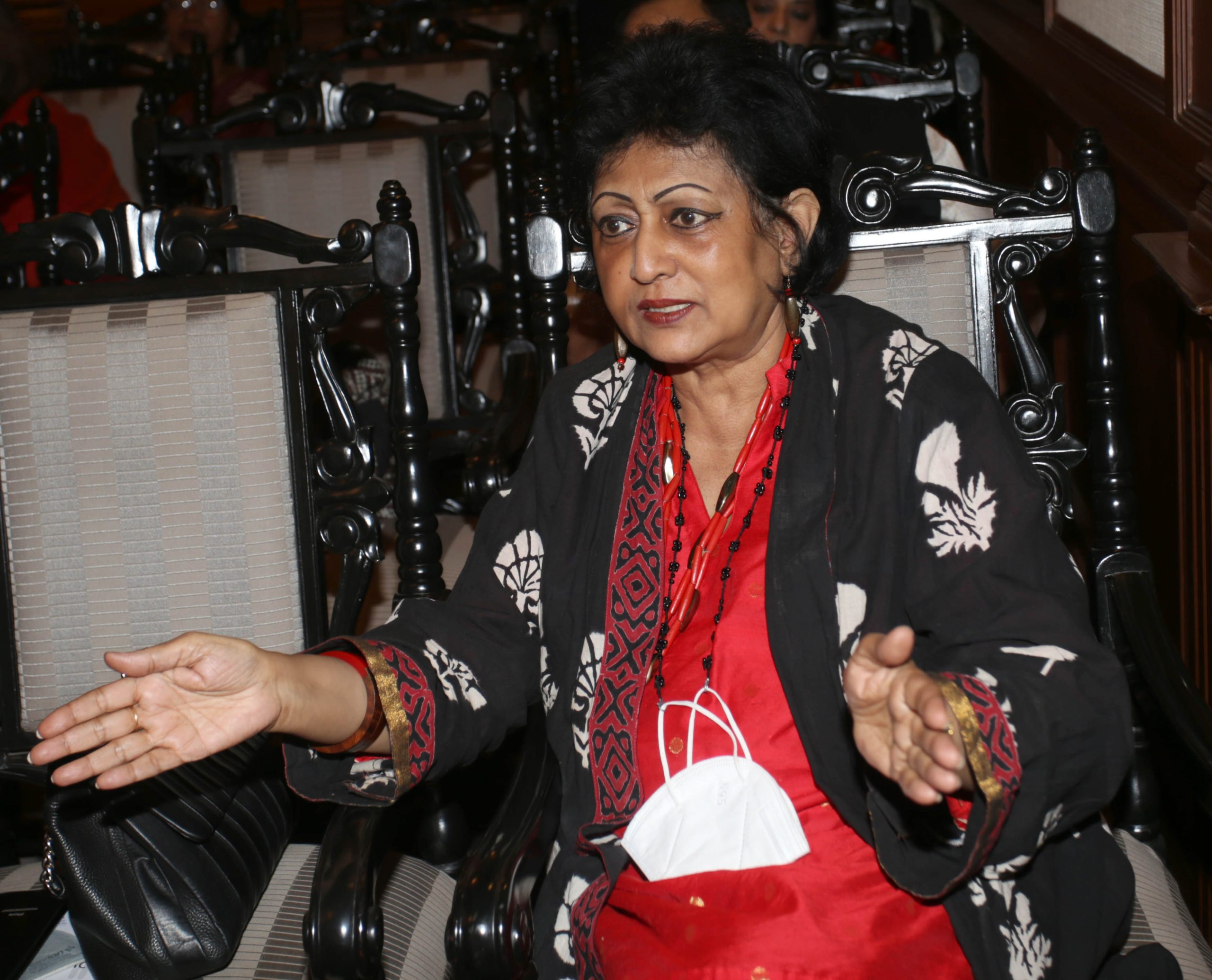Ghazala Wahab has been a prominent voice, that over the years has brought into the mainstream, the deep sense of insecurity faced by Muslims in India. As a renowned journalist and Executive Editor of Force magazine, she has written articles on homeland security, terrorism in Jammu & Kashmir, left wing extremism, religious extremism, communalism and human rights. Her book Born A Muslim: Some Truths about Islam in India, is a riveting account that seamlessly brings together a blend of journalistic, legal, academic and philosophical discourses. More importantly, it brings forth an engaging narrative that involves personal stories from her own life as well as the experiences of many others with whom she has interacted within the Muslim community.
An increasingly relevant conversation, especially in today’s India, was conducted in this insightful session of An Author’s Afternoon at Taj Bengal Kolkata. Organised by Prabha Khaitan Foundation, this has been Wahab’s very first in-person event ever since the release of her book last year. Owing to the pandemic, all previous interactions with audiences had been confined to the virtual world. Gouri Basu, Ehsaas Woman of Kolkata and Director of EZCC introduced the session and welcomed the guests. In conversation with Wahab was Sangita Dutta, Ehsaas Woman of London. Dutto is a writer, director, musician and an artist working between India and the UK. Her critically acclaimed work include the award winning film Life Goes On and the documentary film Bird of Dusk. She has books on cinema to her credit which include World Director Series: Shyam Benegal and has co-edited Rituparno Ghosh: Cinema, Gender and Art.
It was Wahab’s column called First Person, along with her autobiographical work and in-depth study of Islam that eventually lead her to amalgamize her thoughts into writing her book. Laying bare a plethora of misconceptions surrounding Islam, Wahab states that her greatest learning through all of her research has been the difference between the religion Islam itself and the practice of Islam. After reading the Quran along with its translation and interpretations with the purpose of actually understanding the scripture, Wahab came to the realisation that theoretically Islam is an extremely progressive religion. She goes on to explain that the dichotomy between what the Quran says and what the practice of the religion comprises, dates back to almost 250 years after the passing of Prophet Muhammad. At that time, it was primarily the upper class Arabs who were formulating the rules of Islam to establish a well governed society. These scholars and learned members of the community were not relying solely upon the Quran and the scriptures while formulating the rules of Islam, but were also inculcating concepts peculiar to their centuries old heritage and their own particular tribal identities. Essentially this lead to many different narratives eventually seeping into the practice of Islam, but these were not necessarily mentioned in the Quran. As Wahab explains in her own words, “This was the time that the Islamic jurisprudence was being written. When these learned scholars of Islam were writing down these laws about marriage, divorce, theft etc … also about blasphemy, blasphemy is not mentioned in the Quran because there was no concept of reneging on one’s religion. To enforce these laws, the scholars had to tell the people that look we have not strayed from the path shown by the Prophet, these laws have the sanction of the Prophet. This I would say is the history of Islamic experience, not Islam per say. Most Muslims do not distinguish between these two things.”
Wahab’s work has come at a time of great polarization across the globe, hence it is all the more critical today. In India too, tolerance is becoming an issue of utmost importance. The all-pervasive feeling of being cut off from mainstream society is an immediate reality for most Muslims. Prejudices and misconceptions run deep. Both globally and in our nation, there is a dire need to further enhance this dialogue, leading to a better understanding of one another. When addressing the case of India, Wahab feels that across the country and more specifically in the North, the marginalization of the Muslim community has been exceptionally strong. One of the main reasons behind this was the migration of the more scholarly, learned, emancipated and economically upward Muslim to Pakistan during Partition. The community that got left behind were the very poor who couldn’t afford to move. This community was inherently more insecure, had far lesser exposure to education and new ideas and therefore became all the more conservative. Wahab says, “This has been the biggest bane of Muslim Society in India which has made them easy victims of prejudice by mainstream people, they are pushed outside the margins and face violence.” While speaking of prejudice she adds, “Prejudice is a natural part of human nature which we all inherit. It’s a natural human tendency but the important thing is you recognise that you’re prejudiced and you try to educate yourself on what might be the source of that prejudice.”
One of the biggest learnings for Wahab has been within the realm of gender equality. She refutes the perception that Islam is a backward or primitive religion which does not take into account women’s rights. Instead she urges one to see the historical, cultural and social mores of times past which lead to certain notions becoming acceptable. These notions were not so much rules and regulations, rather were the need of the hour in ancient times and societies. She further elaborates by saying, “For instance this whole hijab controversy … there are three verses in the Quran that pertain to a person’s appearance and two of them address both men and women with similar injunction against both men and women and the third one is specifically for women, but that is because of the historical context. It’s because women were going out and being harassed by bandits in a particular area so that verse says that you cover yourself up so that bandits would know that you are a Muslim woman and would fear reprisal by Muslim soldiers. So if you show yourself as Muslim, you will not face harassment.”
Wahab admits that she too has been influenced by hearsay and popular opinions into believing many preconceived ideas about Islam and Muslims. It’s only after thorough research and speaking with people from varied walks of life that she came to have key realisations regarding the truth rather than the myths that surround Muslims. Another common notion in popular discourse that she addresses is that of the global Muslim brotherhood – this belief that Muslims do not believe in a nation state, rather adhere to the concept of the global Muslim community. Instead Wahab discovered that Muslims are an extremely diverse community and are rather insulated and self-oriented. Not just globally, but in India too she feels that Muslims rarely stand up for one another. She states the example of Muslims across India not really raising their voice for Kashmiri Muslims. Instead each community draws much of its everyday life from the region that it belongs to whether it is their language, food, daily habits or their beliefs.
In conclusion, Wahab believes that Muslims themselves will have to take on the responsibility of fellow Muslims very proactively and reach out to one another in an effort to uplift the community. Education perhaps being the most valuable aid that the community can help with by instituting scholarships for Muslim students. She has also outlined in her book, the positive movement required within the Muslim community to help bring it back into the mainstream.

